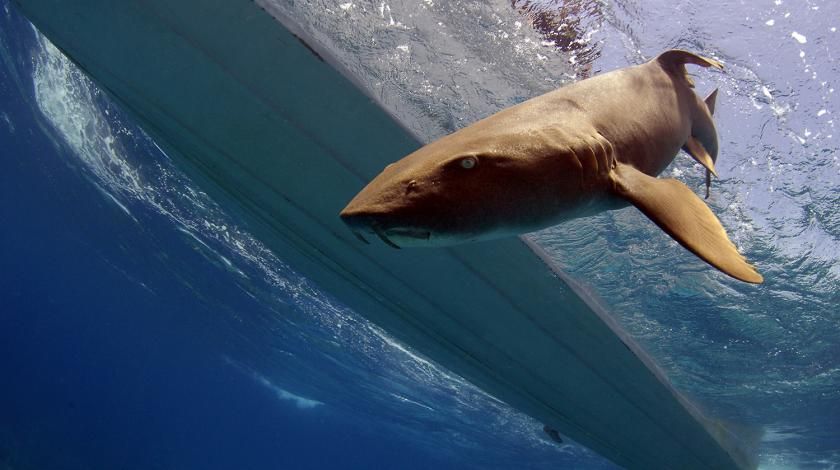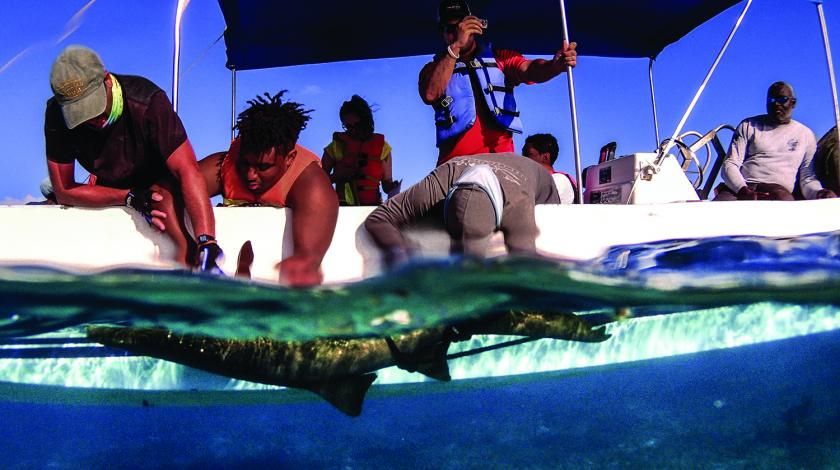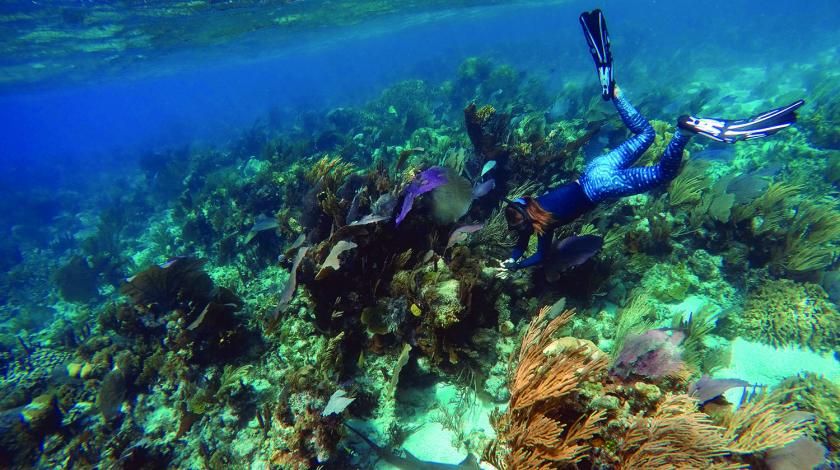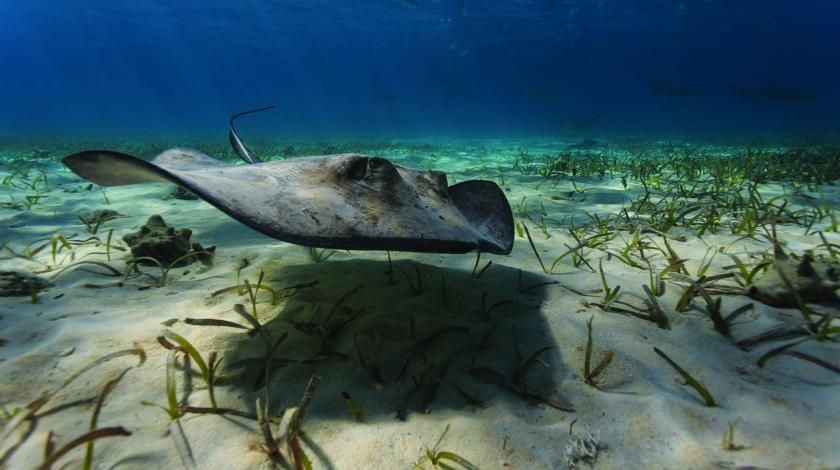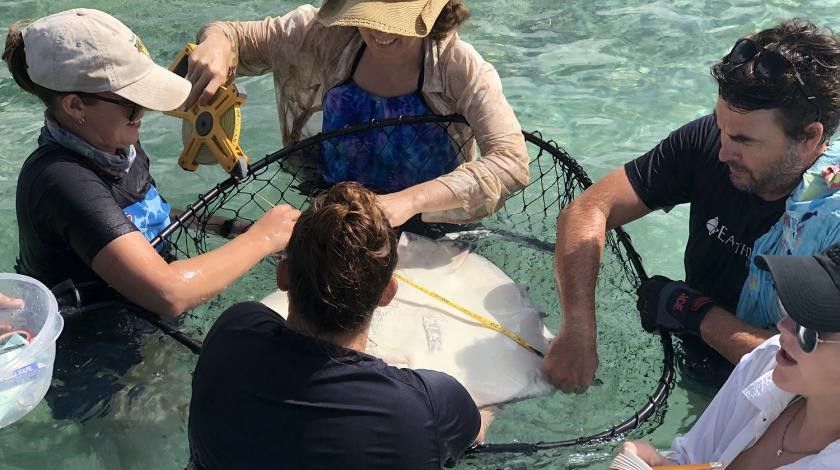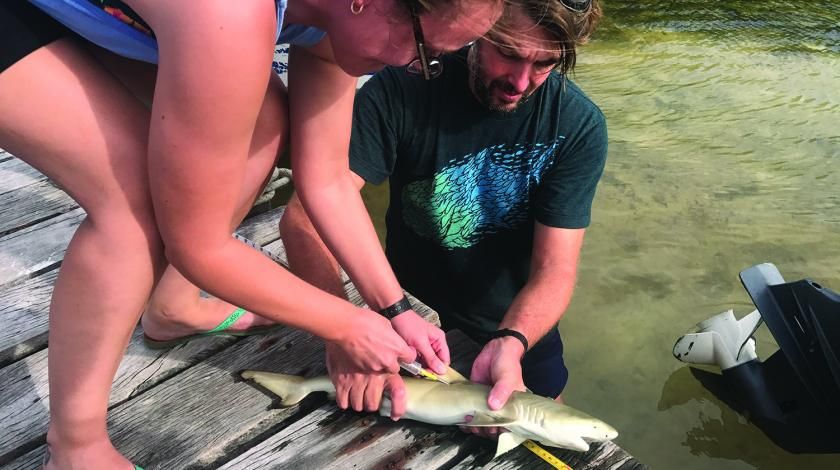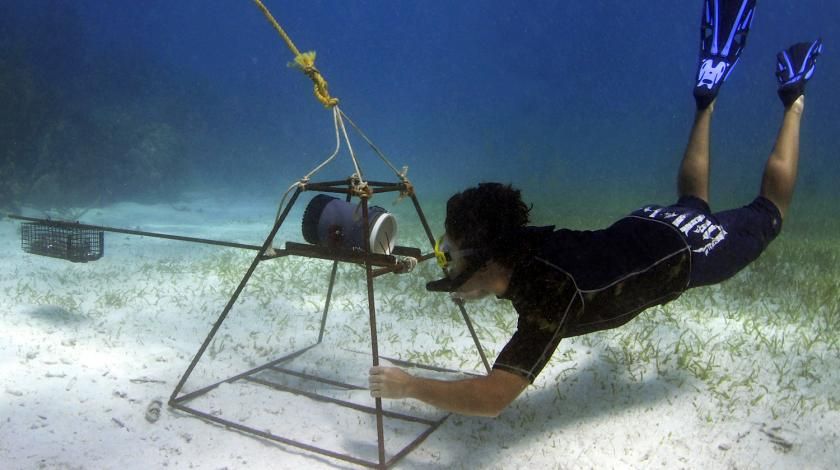Shark and Ray Conservation in Belize
Belize’s barrier reef was once a refuge for sharks, but with the intrusion of fisheries, shark populations have been decimated. Help researchers make the reef a safe haven again by investigating how marine reserves affect shark populations.
Within this well-protected marine reserve, many animals that are rare in fished areas thrive, including groupers, snappers, many species of coral, and sea turtles. But how well do these protected areas safeguard sharks and rays? How long will it take for decimated shark populations to recover with these protections? Join this one of a kind study to help researchers collect data on the integral role sharks and rays play within their ecosystems and the best way to conserve them.
With help from Earthwatchers, Dr. Demian Chapman and his team have already accomplished a lot for the sharks and rays of Belize. They've teamed up with fishermen and the government to strengthen shark fishing regulations (shark fins are a prized soup ingredient in some parts of the world), secured protected status for all rays nationwide, and helped increase and improve protected areas for sharks.
These wins have taken their research into an exciting new phase. Join in groundbreaking efforts to monitor shark and ray populations in and around three protected areas, working with shark fishermen employed to tag sharks instead of landing them! Your participation will provide key scientific information need for conservation and it will also directly save thousands of sharks every year by providing an alternative livelihood for shark fishers. Teams will also help track the species of sharks that fisherman catch using fin samples, and will also document the species of rays that populate the waters. Your work will help protect the coral reefs of Belize and the captivating predators that call them home.
From a boat under the Caribbean sky, your team will deploy baited remote underwater video cameras (BRUVs) to learn what’s happening in the water. Teams will catch sharks and rays and apply tags that will allow researchers to track their movements in relation to protected area boundaries– a critical part of assessing how well the protected areas are working. Help save some of the world’s most fascinating creatures, while visiting some of the most beautiful reefs on Earth.
For more information or to book contact our office (03) 9016 7590 or email
Nadine Rund | APRIL 6, 2018 ★★★★★
"Can't say enough about this experience"
This expedition with Earthwatch to monitor sharks in Belize was one of the most rewarding experiences I have had in my nearly eighty years. There was not a wrong note. The leader, Megan Kelley, was superb. She taught us well and explained everything very well. The staff of the research center were excellent. I was concerned that my leg strength and balance would not be sufficient for this project, but all went well. I was the oldest person on the project. My task was to run the centrifuge on the boat to separate plasma from red blood cells when the sample had been taken from the shark. The other women on the expedition were all very good. All participated enthusiastically. The accommodations and food were very good. I cannot say enough about this experience. I went with two friends from Tucson, one of whom had been on six previous Earthwatch expeditions. I can certainly see why she has always been so enthusiastic about Earthwatch. Keep up the good work.
Nancy Martin | MARCH 26, 2018 ★★★★★
"Unique Caribbean Experience"
Unique opportunity to experience the Caribbean (coconuts falling from trees, iguanas, and hermit crabs underfoot, red snapper so plentiful as to be used as bait.) Participate in shark research in a major coral reef in a non-tourist research reserve. Can't beat it!
Jessie Appelhans | NOVEMBER 20, 2017 ★★★★★
"How sharks changed my life"
Before my expedition with Earthwatch I was drifting through life with one goal, find a way to save the sharks. However growing up in the land locked state of Colorado I was told that I would never be able to help the rapid decline of shark populations and that my energy would be better spend on land issues. I stumbled upon Earthwatch Institute while scrolling through my Facebook news feed, found the shark expedition in Belize and I couldn't believe that people could actually volunteer to help with research of this variety. At first I thought it would be way too expensive and I would never come up with the money to go. After the passing of my grandmother I inherited just enough to cover the expedition costs and my fights. The expedition absolutely changed my life, It was worth every penny and you are able to see where your dollars are going. I was able to work hands on with sharks and gain knowledge and experience you cant get in a classroom. This is my passion and I felt like a natural on the boat, handling sharks, and fishing like the locals. The experience opened up so many doors to continue my education because I was able to work side by side with some of the coolest professors and PhD students. After talking with the expedition leaders I felt confident in my path to get a higher education by moving to Florida and continuing and education out there. This expedition fueled my passion to save sharks and I hope to make it back to Belize.
-
 Activity Level: Moderate
Activity Level: Moderate -
 Location: Riversdale, Belize
Location: Riversdale, Belize -
 Lead Scientist:
Lead Scientist:


